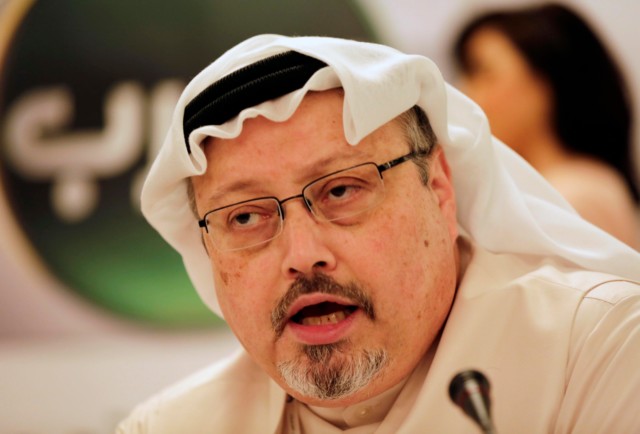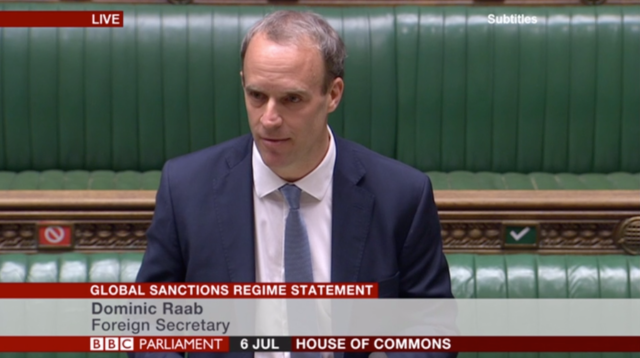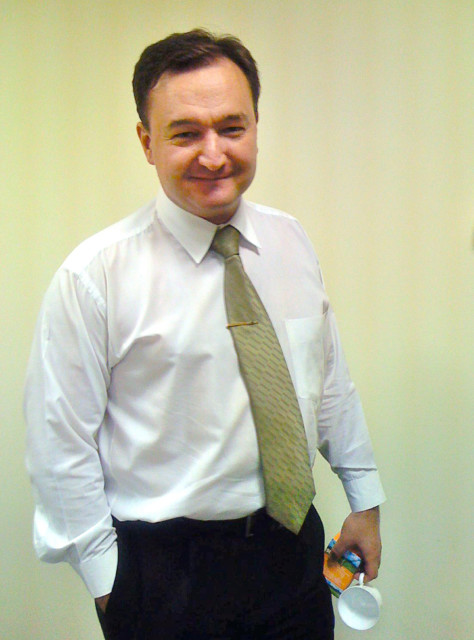RUSSIA has threatened to retaliate after Dominic Raab announced sanctions on 49 “thugs with blood on their hands” including those involved in the killing of Jamal Khashoggi.
The Foreign Secretary has vowed Britain “will not look the other way” and won’t let human rights abusers travel to or funnel money through the UK.

Mr Raab told MPs the first sanctions over human rights abuses will cover those involved in the deaths of the Russian lawyer Sergei Magnitsky and the Saudi journalist Jamal Khashoggi, the systemic killings of the Rohingya population in Myanmar and the North Korean gulags.
Mr Raab said this afternoon: “We will hold to account the perpetrators of the worst human rights abusers.
“The regulations will enable us to impose travel bans and asset freezes on those involves in serious human rights violations
“If you’re a kleptocrat or an organised criminal you will not be able to launder your blood money in this country.
“This Government sends a very clear message that those with blood on their hands – the thugs of despots.
“The henchman of dictators will not be free to waltz into this country, to buy up property on the Kings Road (in Chelsea, London), to do their Christmas shopping in Knightsbridge, or to siphon their dirty money through British banks or other financial institutions.”
Russia threatened to retaliate after Britain’s list sanctioned officials included Alexander Bastrykin, the head of the Investigative Committee which reports directly to President Vladimir Putin.
The Russian embassy in London said in statement: “The Russian side reserves the right to take retaliatory measures in connection with Britain’s hostile decision.”
Moscow was particularly outraged by the sanctioning of top directors of Russia’s Investigative Committee and General Prosecutor’s Office as well as judges.
The new sanctions were inspired by the killing of Russian lawyer Sergei Magnitsky in 2009 who disclosed massive tax fraud in Russia and listed 25 people – including judges, state officials and doctors – who failed to stop the torture of Mr Magnitsky.
Other targets on the list are Saudi Arabian state officials who conspired to kill Washington Post journalist Jamal Khashoggi at the Saudi Consulate in Istanbul in October 2018.
Some of the people include a former adviser to Saudi Crown Prince Mohammed bin Salman, who the Foreign Office says “planned and directed the killing” of Mr Khashoggi using a 15-man team of hitmen.
The current regulations will include anyone who threatens people’s right to life by assassination or extra judicial killing, who submits people to torture, or slavery or servitude.
Mr Raab said this is only the beginning of the new regime of sanctions and he will be looking at adding corruption to the list of abuses which can earn criminals bans on entry to the UK.
It also puts sanctions against the entire parts of North Korea’s Ministry of State for running horrific political prison camps and murdering, torturing and enslaving its prisoners.
Mr Raab told MPs: “With these first designations, this Government, this country and I hope this House makes it crystal clear to those who abuse their power to inflict unimagineable suffering – we will not look the other way.
You cannot set foot in this country, and we will seize your blood-drench ill-gotten gains if you try.”
The UK will work closely with Canada and America, who already have Magnitsky-inspired sanctions – on the new sanction to deliver the biggest hit to human rights abusers.









